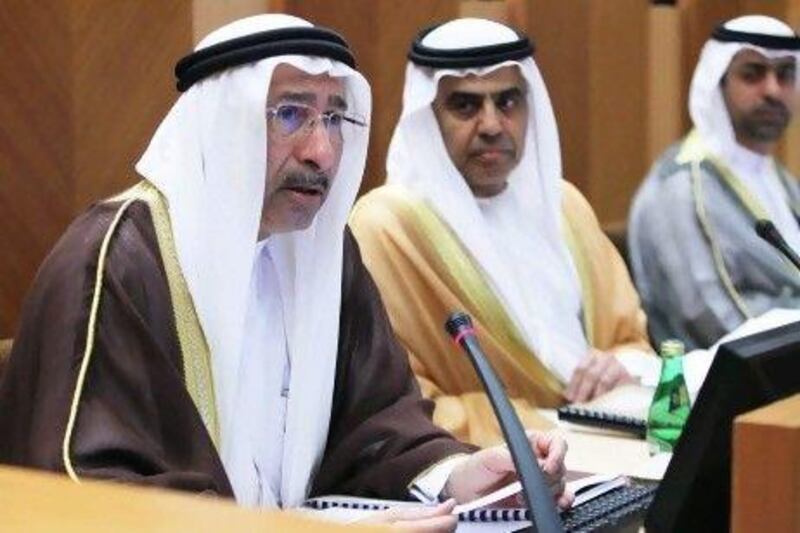ABU DHABI // Banks will soon be punished for offering loans to people who cannot pay them back, the governor of the Central Bank has told the FNC.
Sultan Al Suwaidi told FNC members at their session last month that a new law protecting UAE consumers' rights was in the works and would soon be put to the council for approval. It would include fines for banks that lend to borrowers who cannot afford to repay, he said. He did not provide details of how this system might work.
Members told the governor that banks were taking too much of debtors' salaries as repayment, despite three existing laws - under federal, human resources and pension law - that cap debt payments at a third of salary.
"There are orphaned children, but their dad's alive, and families about to break up because of debt burdens," said Ahmed Al Amash, a member from RAK.
"Let me tell you of one case," Mr Al Amash continued. "One Emirati's monthly salary is Dh20,400. Around Dh17,600 is deducted from him in paying off debt. He is left with Dh2,800.
"This is a family of six. How can they live on Dh2,800 per month? And there are even some who get nothing from their salaries."
He said that though the President, Sheikh Khalifa, continues to increase salaries for Emiratis, banks take advantage of that by enticing them with special offers to borrow more.
Mr Al Suwaidi said he was aware of the problem but currently the Central Bank was powerless to stop it.
"Because the Central Bank does not interfere when a bank account is opened, or loans are agreed on, we cannot interfere in debts between the bank and the customer," he said, assuring the members again that the new law would change matters.
Mr Al Suwaidi said the current laws are ineffective without punishment.
"We know that there are laws that do not permit more than a quarter of a salary to be deducted, or a third in some cases," Mr Al Suwaidi said.
"We cannot in the Central Bank work without a law. There are no punishments in these laws for banks. We want that in the law."
Mr Al Suwaidi noted that presidential decrees have helped to resolve many debt cases. In January, Sheikh Khalifa ordered that 6,830 Emiratis should have their debts of up to Dh1 million settled. Those in jail for owing money or detained pending a court ruling were to be freed.
Last month the decree was extended to 368 Emiratis owing up to Dh5 million.
FNC members and lawyers said that relying on presidential decrees to lift Emiratis out of debt would not always work. Some FNC members called for a recommendation to be raised to the cabinet for the current laws setting a percentage cap on debt repayment to be enforced.
Khaled Mustafa, a lawyer in Abu Dhabi, said regulating loans was the only way to control the problem. "People should not rely on the government every time to help," he said.






